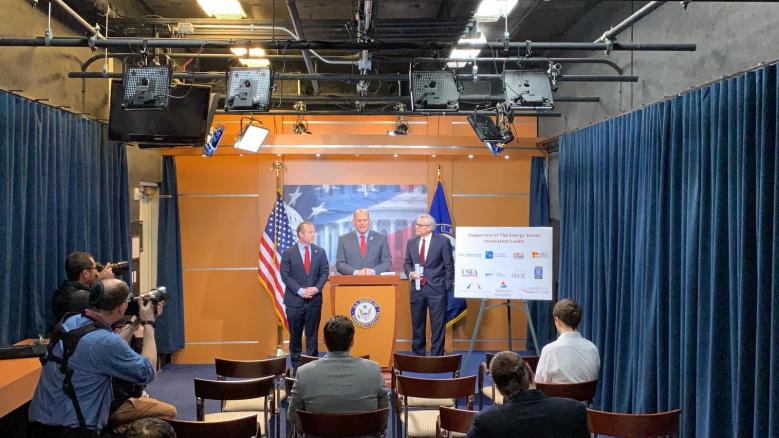
USEA Chief Says New Energy Tech Tax Credit Will Spur Innovation and Reduce Emissions
Washington, D.C. – Congressman Tom Reed (R-NY) has introduced legislation that will provide a tax incentive for new and innovative energy technologies in an effort to help the United States compete globally with technology advancements in other countries.
In a press conference Wednesday, Reed said the United States is falling behind in energy innovation and expects his bill, the Energy Sector Innovation Credit, will help the country become more like “Silicon Valley innovation: fast, disruptive, exciting, and good for consumers.”
The credit is available for both new technologies and advanced retrofits of old technology. There are two components of the credit: a production credit and an investment credit.
The size of the production tax credit will decrease as a new technology grows in scale and accounts for a larger percentage of national electricity generation. The credit will sunset when the technology accounts for more than 3 percent of national electricity generation for its technology type, or after a 10-year period.
The investment credit will be as much as 3 percent for nascent, energy storage-related, and retrofitted technologies, and up to 40 percent for a brand-new technology. These incentives for new technologies aim to encourage innovation and attract new market participants.
However, technologies that already benefit from an existing tax credit will not be eligible to capitalize on the Emerging Energy Technology Credit. Examples of such credits include the Investment Tax Credit (ITC), Production Tax Credit (PTC), and 45Q.
In a statement, USEA Executive Director Barry Worthington said: “Any legislation that encourages new energy technology that improves energy delivery, expands access and reduces emissions is a good thing. We applaud Congressman Reed’s effort.
“In order to manage increasing global energy demand, U.S. energy abundance, and the transition to a clean energy economy, innovation and competition is necessary. Between the exceptional research and development at our Energy Department’s national laboratories and innovation work in the private sector by many of our members, the United States is already a world leader in innovation while continuing to reduce greenhouse gas emissions.
“Our industry is expected to double our energy services to our customers by midcentury while decarbonizing the energy sector. This is a challenge, and measures like Congressman Reed’s legislation will stimulate energy technology development and help the industry meet that challenge.”
###
To speak with Barry Worthington, contact Dipka Bhambhani at dbhambhani@usea.org or 202-321-3337.
Follow us on Twitter @USEnergyAssn for updates.
